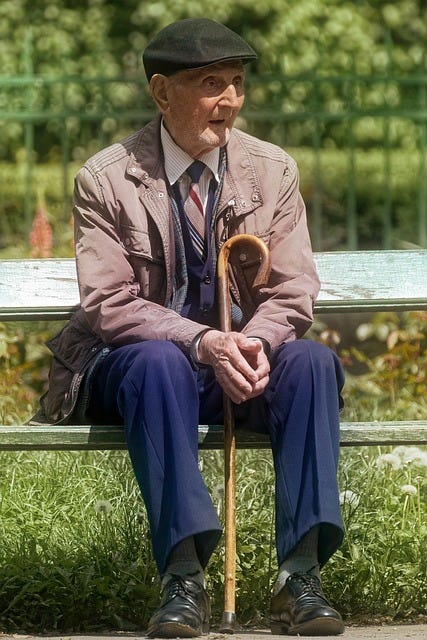The Impact of Losing Independence on Older Adults
First, I lost my wife to cancer, then I developed peripheral neuropathy, and that resulted in problems with my balance. Neuropathy led to my having to give up my car and driving. No longer able to drive and entering my eighties, I became increasingly isolated and suffered several falls. Now, my family has helped me move into an independent living community. In reality, the community is not independent because my fellow residents rely on staff for everything. It is difficult to change and transition into this type of living. Just before moving, I fell and suffered a hip fracture.
There are those elderly people who do not suffer from physical or mental maladies. Perhaps it's the old saying that "It's the luck of the draw." I can report that I was always physically active. That activity included running 5 miles on alternate days.
Losing independence is one of the most tough challenges older adults face. Simple tasks that were once easy, like cooking a meal, going for a walk, or driving to the store, can become impossible without help. This loss brings many changes, not only to daily life but also to emotional and physical well-being.
One of the strongest feelings that comes with losing independence is frustration. People who have spent their entire lives making decisions for themselves suddenly find that they must rely on others. This can make them feel helpless and even embarrassed. They may not want to ask for help, even when they need it. Over time, this can lead to sadness, loneliness, and a sense of isolation.
Anxiety is another common feeling. Being unable to control one’s surroundings or daily routine can make life uncertain. Fear of falling, getting lost, or being a burden on loved ones can cause stress. This stress can make sleeping, eating properly, and enjoying daily activities harder.
Physical health is also affected. When independence is lost, people often become less active. They may spend more time sitting or lying down because moving around feels difficult or unsafe. Muscles weaken, balance gets worse, and the risk of falls increases. In fact, where I live there are frequent reports of falls among community members. For some reason many how up with black eyes. Other problems can develop without regular movements, such as heart disease, weight gain, and poor circulation.
Cognitive health can decline as well. When people are no longer able to take care of themselves in the way they used to, they may lose interest in activities that once brought them joy. Without mental stimulation, memory and thinking skills may start to fade. Depression can also develop, making it even harder to stay engaged with the world.
The loss of independence often changes relationships. Family members and friends may become caregivers, which can create tension. Older adults may feel guilty for needing help, while caregivers may feel overwhelmed. This shift in roles can make communication difficult and lead to misunderstandings.
Despite these challenges, there are ways to cope with the loss of independence. Staying socially connected is one of the most important. Talking with friends, family, or support groups can provide comfort and encouragement. Finding new ways to stay active, whether through physical therapy, chair exercises, or short walks, can help maintain strength. Engaging in hobbies, reading, and learning new things can keep the mind sharp.
Losing independence is never easy, but it does not have to mean losing purpose or happiness. With support, understanding, and adjustments, older adults can continue to live meaningful lives, even when they need help from others.







What you have said is so very important. Stay strong and write often. We care about you.
Keep writing here Allan! You have readers and friends here for you.